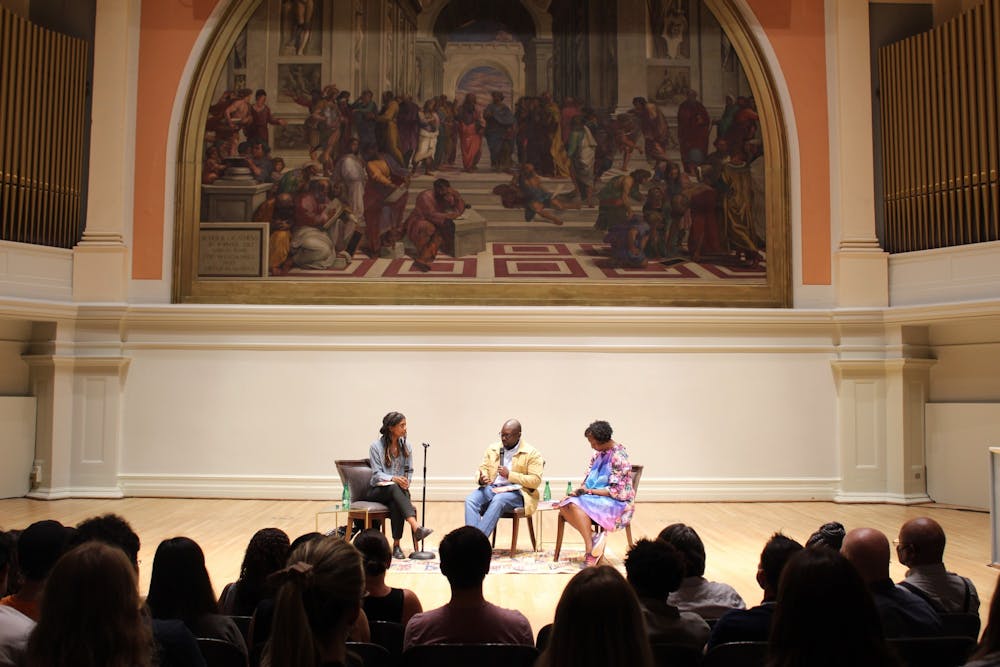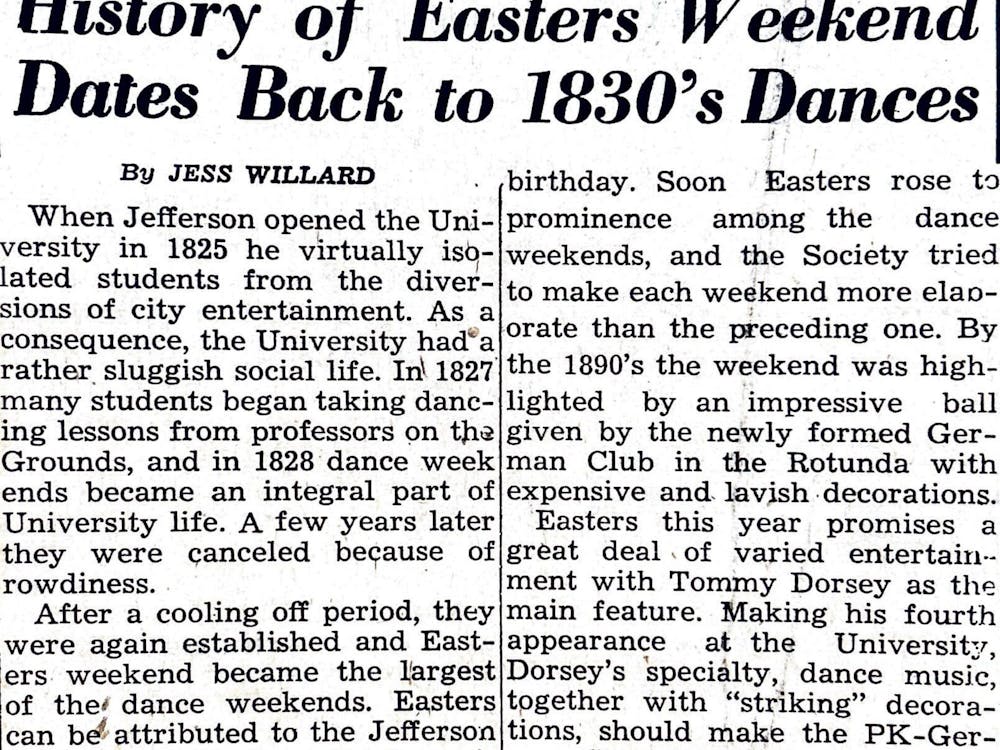The University’s Engagements Program hosted author Jocelyn Nicole Johnson and Jamelle Bouie, New York Times journalist and Class of 2009 alumnus, for a discussion led by English Prof. Lisa Woolfork in Old Cabell Hall Tuesday evening. The group discussed the pertinence of Johnson’s book “My Monticello,” which served as the Engagements Program’s common read for first-year students this year.
This is the first of four Engagements Experiences, and there will be two each semester. These events are intended to encourage first-year students to develop the habit of attending lectures, presentations and performances by visiting scholars, authors and artists at the University.
After introducing the panelists and taking the stage, Woolfork said the first thing she thought of when she read the book was bringing first years together to read, study and think about the text together.
“It is you all that are going to prevent the catastrophic future that Jocelyn has promised,” Woolfork told the crowd of first years. “I’m not being hyperbolic … there are strong, prophetic elements of her work.”
Released in 2021, “My Monticello” explores the idea of home and draws inspiration from real events in the Charlottesville and the University community. One of the moments explored in the book is Aug. 11 and 12, 2017, when white supremacists flocked to Charlottesville for a torchlit march through Grounds and a deadly rally the following day.
At the time, Johnson was teaching young children at public school. The events of that summer completely changed Johnson’s perception of home and “shattered” her conception of how history shapes the present.
“Suddenly the past felt very very close,” Johnson said. “When you saw what had happened in the past, it kind of made these things make sense … It put me in the mind[set] of “How do I connect these things more fully in fiction,’ and that’s why I’m creating these protagonists.”
One of the main protagonists of “My Monticello” is a descendant of both Sally Hemings and the University’s founder Thomas Jefferson. Jefferson owned more than 600 enslaved people during his adult life and DNA evidence demonstrates that he fathered at least six children with Hemings, an enslaved woman at his home of Monticello. More than 4,000 enslaved laborers lived, worked and built the University, even decades after Jefferson’s death.
Woolfork highlighted a tension between Jefferson’s enslavement of Black Americans and the ideals of democracy before asking Bouie to expand on this idea.
“The country, the state, this University, our respective communities [and] where we all come from are bound up in contradiction, and you can’t really untangle that, so the only thing you have to do with it is confront it and understand it,” Bouie said.
The group then moved on to discuss the first story of the book, “Control Negro,” which centers around the story of a Black student who is handcuffed and assaulted on the Corner. The story is a direct reference to the brutal arrest of Martese Johnson by Alcoholic Beverage Control officers in 2015.
In relation to this short story, Bouie asked Johnson how she thinks class affects the experiences of characters in the book. Johnson responded that while there are class differences between many of the characters, she didn’t set out with the goal of creating this contrast — rather, this materialized organically.
“My experience is that in this country, race trumps class,” Johnson said. “There’s no escaping racism through material wealth.”
Top of mind when writing “My Monticello,” Johnson said, were issues of social justice, racism and the climate crisis.
“The way you do anything is the way you do everything,” Johnson said. “If you're able to treat people like something can be extracted and used without care, then you can be that way about the space that you're in, the animals that you depend on for food, the land that you use — that’s a way of being and that’s a habit of being.”
To close the event, Woolfork asked both panelists to give the students a piece of advice for their time at the University. Bouie encouraged first years to take classes that they find interesting to the extent possible, while Johnson told students to embrace the idea that we are all “in this together.”
The next Engagements Experiences event will feature historian Thomas Laqueur. It will be held Oct. 18 at 7 p.m. in Old Cabell Hall.







